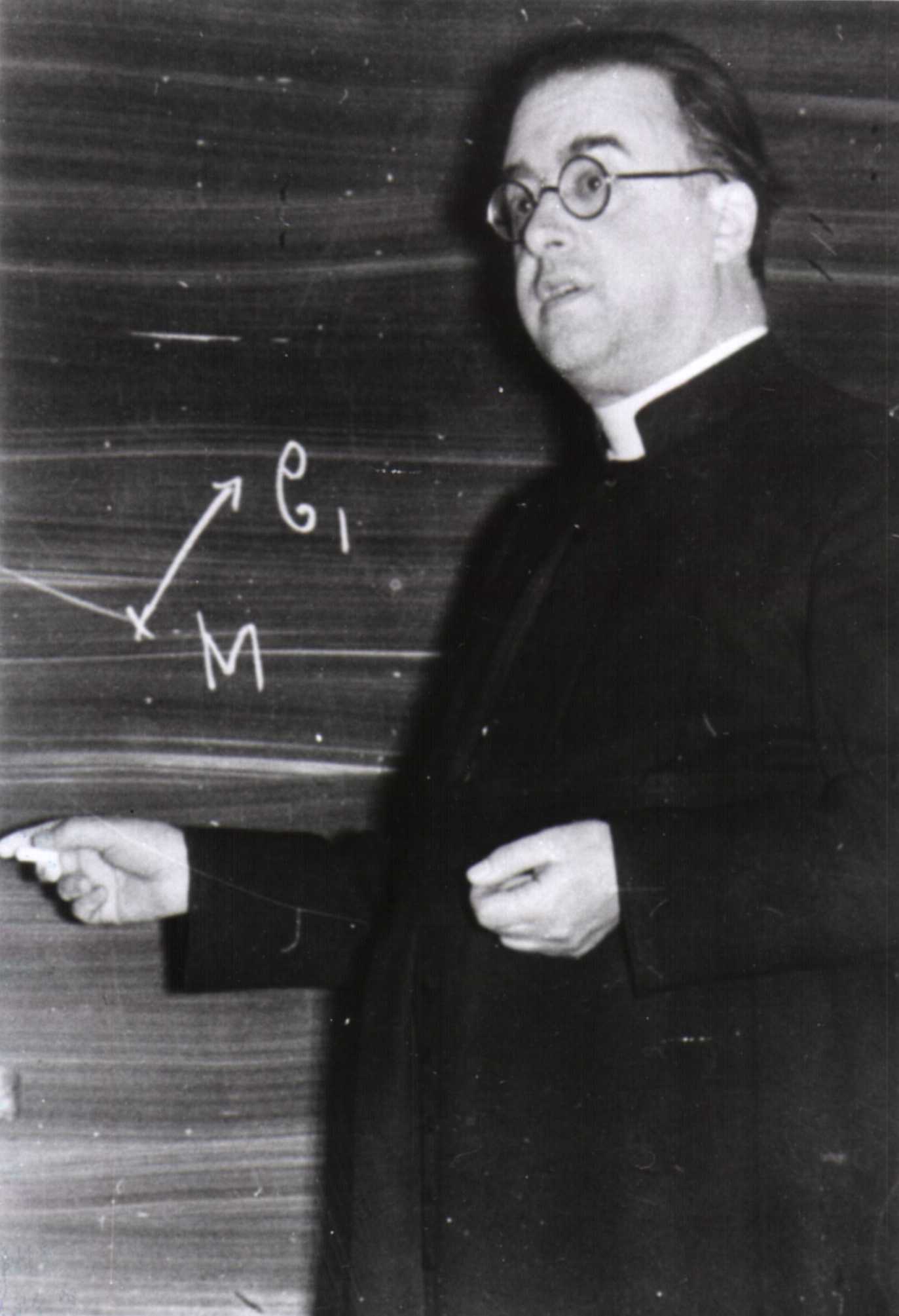I taught a lesson very recently where I was discussing the Big Bang theory with my senior students. About halfway into my spiel a student of mine sitting at the back of the classroom put his hand up and blurted out sounding frustrated, “You’re a Christian, and a man of religion … I thought that you didn’t believe in science.” What an unfortunate and disappointing presumption. Nonetheless, it got me thinking: “Why is there an apparent dichotomy between religion and science? Why can’t one be religious and be a proponent for science and vice versa?”
Rather than replying to that student with, “Just because …” or “It’s my choice, yadda, yadda, yadda …” I decided to ask this student this question, “Do you happen to know who first conceived the idea of the big bang theory?”
“I dunno … some scientist?”
“Yes, he was a scientist. His name was Fr. Georges Lemaître.”

Yes, the “father” of the big bang theory was a Catholic priest. Not only that, Fr. Lemaître applied Albert Einstein’s general theory of relativity to cosmology, which helped Einstein perfect his calculations on the gradual expanse of the universe.
What’s the lesson here? Religion is not allergic to science and science is not allergic to religion. The work between Lemaître and Einstein is just one example of how investigation through the human senses can work harmoniously with faith for the betterment of ourselves.
“Basic scientific research, as well as applied research, is a significant expression of man’s dominion over creation. Science and technology are precious resources when placed at the service of man and promote his integral development for the benefit of all. By themselves however they cannot disclose the meaning of existence and of human progress. Science and technology are ordered to man, from whom they take their origin and development; hence they find in the person and in his moral values both evidence of their purpose and awareness of their limits.” – Catechism of the Catholic Church, par. 2293
Besides, don’t all scientific pursuits begin with a leap of faith?

Don’t forget the Pasteur, who prayed the rosary!
Why do scientist & logical thinkers ignore science & logic whenever it suits them? I mean those who say the ‘Big Bang’ came out of a single entity, unimaginable small & unimaginably dense. If something is unimaginable, then speaking of its size or density is illogical & unscientific ! The Only Logical Statement must be: the ‘Big Bang’ came out of a Single, Unimaginable, Entity… and the Bible tells us that no one can know the Mind of God, It’s unimaginable. Also, for those who read the Bible & take it literally, the opening verses of Genesis state, God created the heavens & the earth, and the earth was void & without form. That should be your first clue that these are Not 24 hr. days. God’s Ways are Not our ways, and one of God’s Days is Not one of our days. 1900 years before Einstein, St. Peter wrote, ‘a thousand years is as a single day, and a single day as a thousand years unto the Lord. This is Not a math equation, it’s an illustration of time compression & expansion(theory of relativity) way before Einstein.
As I understand, St. Thomas Aquinas held that there was no conflict between faith and reason as God created both. Those that think there is, understand neither faith nor reason.
Don’t forget about Gregor Mendell, who was a Catholic monk and the father of genetics!!
Blaise Pascal was a devout Catholic as well 🙂